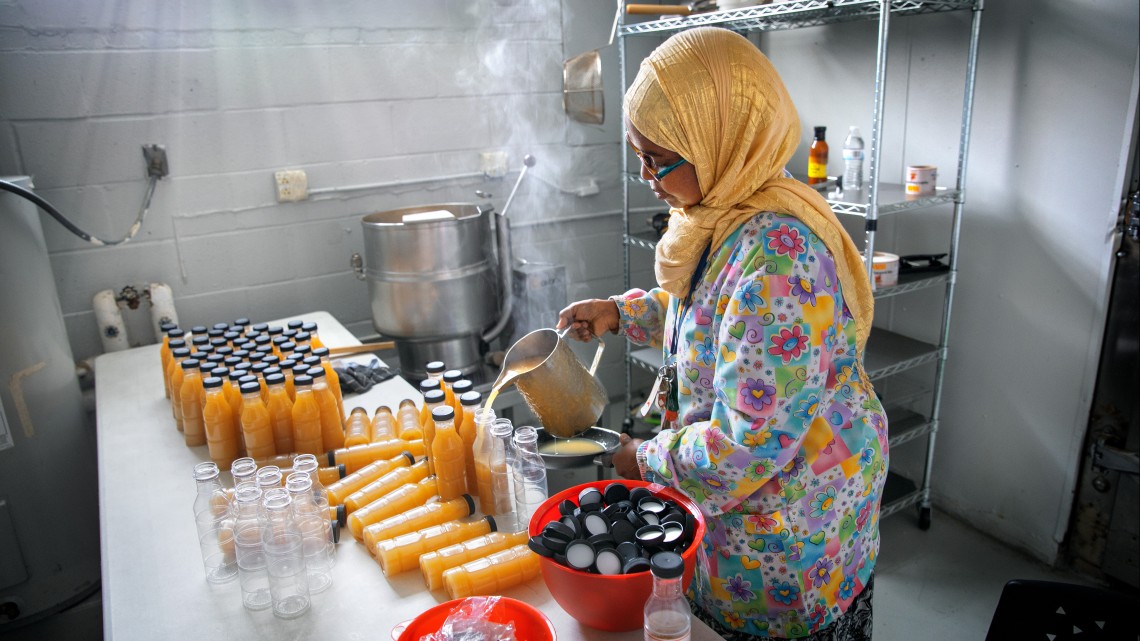
Bisharo Ali, founder and owner of Najah Foods in Buffalo, NY, turned to the CFVC to transform her Somalian family recipes into a line of organic all-natural sauces and dips.
News directly from Cornell's colleges and centers
Certificate brings Cornell food production expertise to entrepreneurs worldwide
By Torie Anderson
For more than 30 years, the Cornell Food Venture Center (CFVC) has helped entrepreneurs transform family recipes and homemade eats into successful commercial food products. The center, located at Cornell AgriTech in Geneva, New York, has served hundreds of partners and facilitated the launch of more than 20,000 food products since 2000.
Now, a new online program from Cornell is expanding access to the CFVC’s expertise and supporting the growth of food entrepreneurs around the globe.
The Food Product Development Certificate is delivered by eCornell and authored by Olga Padilla-Zakour, CFVC director and professor of food science at Cornell AgriTech, and Bruno Xavier, CFVC associate director. Courses are co-facilitated by the CFVC’s extension specialists Cynthia James and Ann Vegdahl, and take participants step by step through product ideation, food safety and quality, processing, packaging, regulatory requirements, and commercialization.
“Food entrepreneurs know how to cook,” said Xavier. “They know how to make the products already, but in the certificate program, newcomers to the industry can fill their knowledge gaps about safety, scaling, and costs — the underestimated bottlenecks that can really stall start-up food companies.”
Ploy Khunisorn, a small business owner and director of educational programs at Boston-based CommonWealth Kitchen, completed the certificate in March. Access to an education from the CFVC team has advanced her epicurean pursuits, including the development of a sustainable cookie made using pulp waste from making soy milk.
“This program was a breakthrough for me,” said Khunisorn. “I learned so much from the course content and case studies about both the scientific and business aspects of developing a food product. With the guidance of the course facilitator, I learned how to make my product safe and shelf-stable.”
Students like Khunisorn complete the instructor-led program entirely online within three months. And with no more than 35 students in each cohort, they leave the program not only with new knowledge built on Cornell expertise, but also with a wider network of fellow entrepreneurs.
“After working with clients for decades, we clearly understood the foundation needed to increase the probability of successfully developing new food products,” said Padilla-Zakour. “This new online program offers an incredible opportunity to learn the most critical aspects of starting a new food business from any location.”
Media Contact
Get Cornell news delivered right to your inbox.
Subscribe
